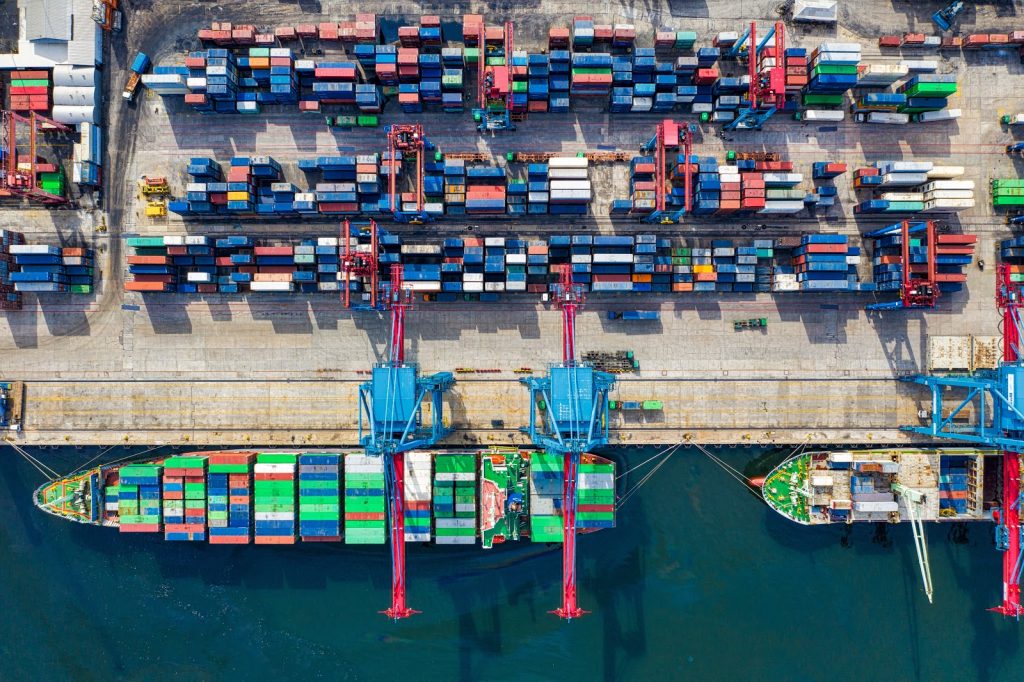Advice for truck drivers during the Coronavirus pandemic
As you will all know, the Coronavirus (COVID-19) outbreak has been sweeping across the globe at unprecedented rates. Although Governments across Europe and the rest of the world have been enforcing social distancing and police-enforced lockdown measures, truck drivers still play a vital role in society – especially those delivering essential goods, such as food and medicine. Each day, truck drivers are at risk of contracting the virus and potentially spreading it to those they encounter during their working day, as well as their family members at home. With this in mind, this blog will explore and consolidate changes, rules, and advice that governing bodies and industry senior management have been advocating and implementing in recent weeks. Our aim is to ensure that you are taking to the roads well-informed and well-protected during these difficult times.

Are truck drivers considered key workers?
Along with NHS staff, school teachers and those in the food industry, HGV drivers are considered imperative during this pandemic. According to Gov.co.uk, truck drivers who deliver goods such as medicine, food and veterinary care are considered key workers.
Changes to Driver’s Hours Rules
With the increasing demand for essential goods, such as food and medicine, there has been an increase in demand for truck drivers to deliver these goods. Therefore, the Department for Transport has relaxed previous regulations on lorry drivers’ driving hours in order to help keep up and support the demand of goods during this pandemic; although these changes will not affect driver welfare or road safety. Changes are as follows:
- EU driving limit has been extended from 9 hours to 11 hours per day
- Daily rest requirements have been reduced from 11 hours to 9 hours per day
- Weekly driving limits have risen from 56 hours to 60 hours.
- Fortnightly driving limits have risen from 90 hours to 96 hours
- A 45-minute break could be taken after every 5.5 hours of driving rather than 4.5 hours
It is imperative that these new rules are adhered to in order to prevent fatigue and therefore accidents. The Department for Transport makes it clear that driver safety must not be compromised. Drivers should not be expected to drive whilst tired and employers remain responsible for the health and safety of their employees and other road users.

Following hygiene safety while on the road
In recent weeks, the Government have been releasing a number of guidelines for the public to follow in order to prevent the spread of Coronavirus, however, some of the guidelines are a little more difficult to follow whilst on the road.
There are a number of ways drivers can reduce the spread of the coronavirus while on shift:
- Wash your hands for at least 20 seconds or use an anti-bacterial gel as often as possible
- While refuelling or handling goods, use disposable gloves
- Avoid touching your face
- Keep at least a 2-metre distance from others while out of the truck
- Catch any coughs and sneezes in a tissue and dispose of it straight away.
As truck drivers are considered key workers, the Road Haulage Association have been working with Public Health England to ensure truck drivers are permitted access to toilets and handwashing facilities at various distribution centres around the UK. UK Haulier have a live truckstop finder that you may benefit from during this time.

Self-isolation & Coronavirus symptoms
If you feel like you have a fever or persistent cough, symptoms which align with those of the Coronavirus, the NHS and Government are insisting you stay at home and self-isolate for at least seven. If you are living with someone who is showing signs and symptoms of Coronavirus, then it is advised you self-isolate at home for at least fourteen days. These measures all help reduce the spread of the virus.
If you are not showing signs and symptoms of Coronavirus, you can still be at risk of catching it – especially when working in more public areas like petrol stations, supermarkets or delivery drop-offs. To ensure you keep yourself safe while at work, we advise using self-service pumps at the petrol station whilst wearing disposable gloves, washing your hands and using hand sanitiser after handling goods, paying by contactless where possible, and wiping down your steering wheel, your vehicle door and other surfaces with high risk of contamination as often as you can.
We recommend reading more information on how to stay safe during the pandemic via the NHS website.

Information on suspended MOTs
During these unprecedented times, many governing bodies have been reviewing their current guidelines. The DVSA recently announced that all MOT testing on lorries will be suspended from the 21st of March 2020 for three months in order to comply with the current Government safety measures.
However, the DVSA, and drivers alike, are keen to follow through with MOT testing as quickly as they can to ensure there are safe trucks on the road. Keep checking the GOV.co.uk website for updates on this issue.
Updates Driver CPC requirements?
Every five years, professional lorry drivers are required to complete 35 hours of training in order to maintain their Driver CPC card. However, in Great Britain, the Department of Transport has put in place temporary measures for the duration of this coronavirus outbreak. Drivers whose Driver CPC card expires between 1 March – 30 September 2020 will be allowed to continue driving without taking part in the training and without the risk of being subjected to law enforcement action by the DVSA. We recommend carrying your current Driver CPC card with you on all journeys within Great Britain and overseas.
Some drivers may have access to remote virtual training from commercial providers. However, drivers will only need to comply with this if the Government put in restrictions over the coming weeks.
The current situation is a new challenge that nobody has faced before, so it is imperative that people’s health and safety is the number one priority. Please do get in touch if you have any stories from the road you would like to share or other tips that drivers would benefit from during this global pandemic. Please get in touch with us on Twitter by tagging us at @stoneridge_uk. If you would like to read more articles, on topics from new legislation to the best truck stops in the UK, browse our driver’s blog.
Click here for more support and information regarding COVID-19 and your rights.
